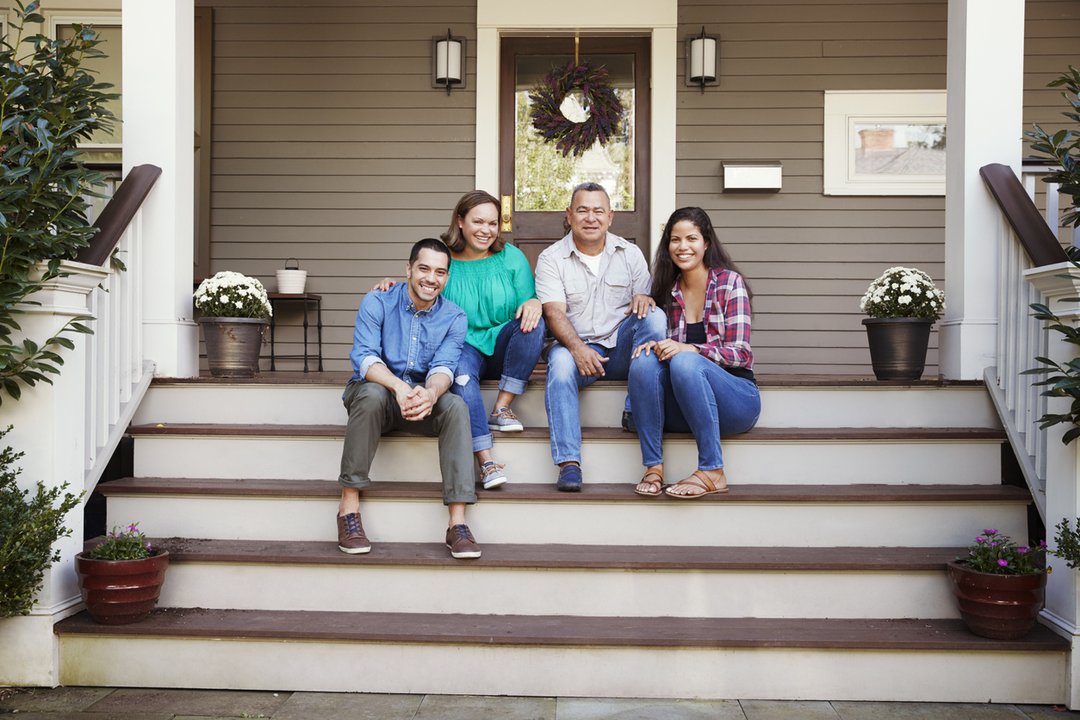This post was originally published on this site
I want to let you in on a little secret: A lot more people than you might think got help paying for their homes.
Around one in three younger millennials did. Around four in five Gen Zers did. And if recent trends continue — skyrocketing property prices, high mortgage rates, a massive transfer of wealth from Baby Boomers to their offspring — those figures are likely to grow.
It’s in this context that I caught up with my colleague Paulina Cachero, who covers real estate and just wrote a piece on how parents can gift their children property without derailing their financial plans.
iStock-905902398
Charlie Wells: First things first. Can you give us an overview of the market for residential real estate in the US right now?
Paulina Cachero: Homebuyers are finding it really hard to crack. It’s one of the least affordable in decades. You can see it in the numbers: Median home prices are up by 70% since 2019. The typical US home cost $422,800 in May. At the same time, borrowing costs have doubled since the pandemic, with mortgage rates chilling buyers in the high 6% range.
In other words, you’ll need deeper pockets to afford larger monthly mortgage payments and to qualify for the loan in the first place. Those financial hurdles are especially hard to overcome for younger, first-time buyers who tend to earn less early in their careers or have more debt, especially if they recently graduated from college.
CW: Given that, what are the options out there for young people looking to buy their first homes?
PC: I wish I had an easy answer. For many, it’s that challenging path of saving and sacrificing to put together enough for a down payment. But that’s taking much longer now. The typical first-time buyer was 38 years old in 2024, according to the National Association of Realtors. In the 1980s, first-time buyers were in their late 20s.
There are some programs across the US that help first-time buyers get cheaper financing or help with their down payments.
And then — and I get a sense this piques a lot of peoples’ curiosity — there is the Bank of Mom and Dad. Parents pitching in to help their children buy homes.
CW: Yes let’s go there. Are you picking up on changes in the way families think about either buying property for their children or gifting it?
PC: I am. Today’s market challenges have encouraged more parents to pitch in, and it’s not just the super wealthy. We’re also at a point where Baby Boomers are starting to pass down their wealth, and they’re doing it in a different way than prior generations. They often want to give during their lifetimes. That’s bolstering this trend.
CW: So what options do parents have if they want to gift property?
PC: There are a lot, with varying strategies for differing circumstances. Starting with maybe the most intuitive: Just giving cash for a down payment. Moving up from there, some parents instead set up intrafamily loans, which can offer better rates than those offered at a bank. (There are rules about these types of loans, though.)
Some high-rolling families will simply gift properties to their heirs outright. In these cases, estate planning tools like trusts and limited liability companies also come into play to help manage how and when assets get passed down.
CW: What could go wrong? What’s the biggest pitfall to look out for?
PC: The more generous you are, the more tax strings can come entangled. The IRS allows individuals to give up to $19,000 annually tax-free without reporting. Anything more than that will count toward your lifetime gift allowance, which currently hovers near $14 million in 2025.
Any way you give may be subject to tax policies. So if you think you’re clever by selling your house to your kid for, say $1, think again. The difference between the sale price and the market value is considered a taxable gift. Depending on how you give — lump sum, property transfer, bargain sale — you could face income tax, capital gains, or gift-tax implications.
Also, let’s be honest: Not every family has the means to give away an entire house. Even so, families are finding creative ways to become homeowners together, including pooling financial resources across generations and living under one roof. So the thinking on helping out with housing is changing a lot, and not always in the ways people might expect.
© 2025 Bloomberg L.P.
